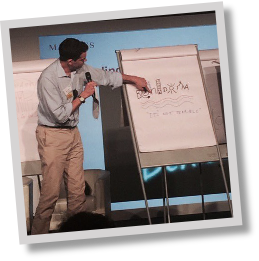The workshop began with Imogen Fowler, partner at Hogan Lovells, Alicante, discussing rebranding failures and some of the more unusual and questionable reasons for rebranding, such as a brand owner who was faced with increasing copycats in the market, and rather than spending money on enforcement wanted to rebrand to differentiate its products. Imogen cautioned the brand owner to put in place an enforcement plan instead, to avoid losing all brand equity with consumers.
Philippe Claude of Mars then discussed the rebranding of RAIDER to TWIX in 1991, which remains a sensitive topic for many German, Dutch and other European consumers, who were very attached to the RAIDER brand. The driver behind this rebranding was the desire for a truly global brand, an increasingly important factor for many brand owners in view of the rise of global social media and globalisation. Philippe discussed a Dutch retro edition of RAIDER launched in 2015 and how brands could be revived from time to time to meet consumer demand. He went on to discuss the MARATHON rebrand to SNICKERS, and how aspects of the old MARATHON brand are now once again making their way into Mars’ new product get-up, showing that old brands are often successfully recycled.
Christine Hsieh of Google discussed rebranding to address technical constraints and with a view to enhancing consumer experience. She discussed how the GOOGLE logo was adapted to make it consistent in low-bandwidth countries, and prominently visible on mobile phones and wearables of all kinds. Christine also addressed the reasons behind the rebranding of Google’s holding company to ALPHABET, enabling Google companies that are far removed from Google’s core internet products, such as Google Life Sciences (now VERILY) to have a separate identity.
Arthur Artinian, partner at K&L Gates, London, moved into the legal aspects of rebranding, including clearance, trade mark and domain name filings, contracts with marketing and advertising agencies and others and the impact on enforcement. Artinian emphasised the importance of consumer engagement, especially via social media and concluded that successful rebranding involves an overhaul of goals, messaging, and overall culture - not just changing a name or a logo.

To close the workshop, participants split into small groups for a practical exercise on how or whether to rebrand Benidorm, focusing on both the marketing and legal aspects.
The workshop was organised by the MARQUES Brands & Marketing Team. Photos courtesy of Sarita Schröder
 Issue 070
Issue 070
 Issue 070
Issue 070